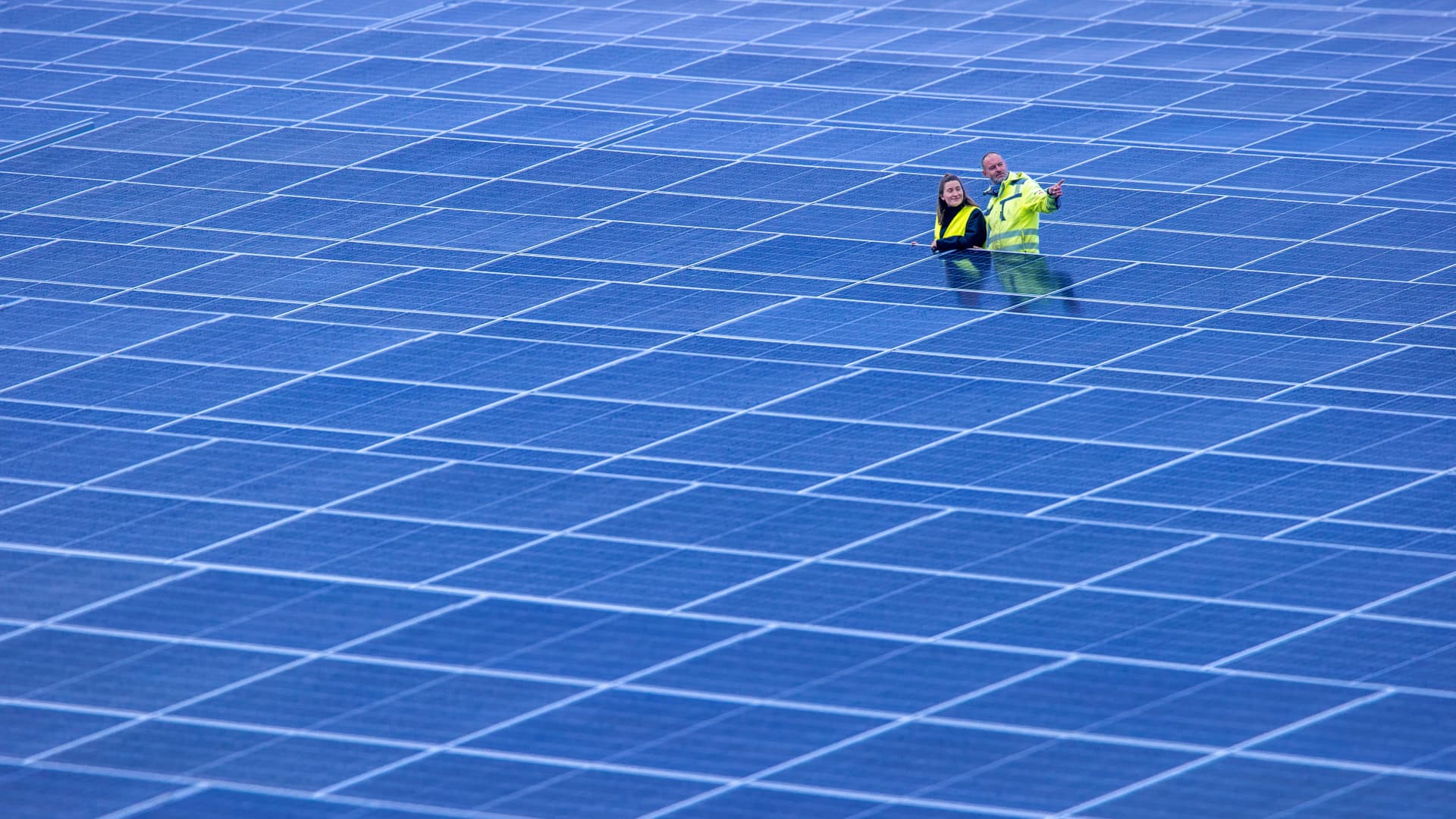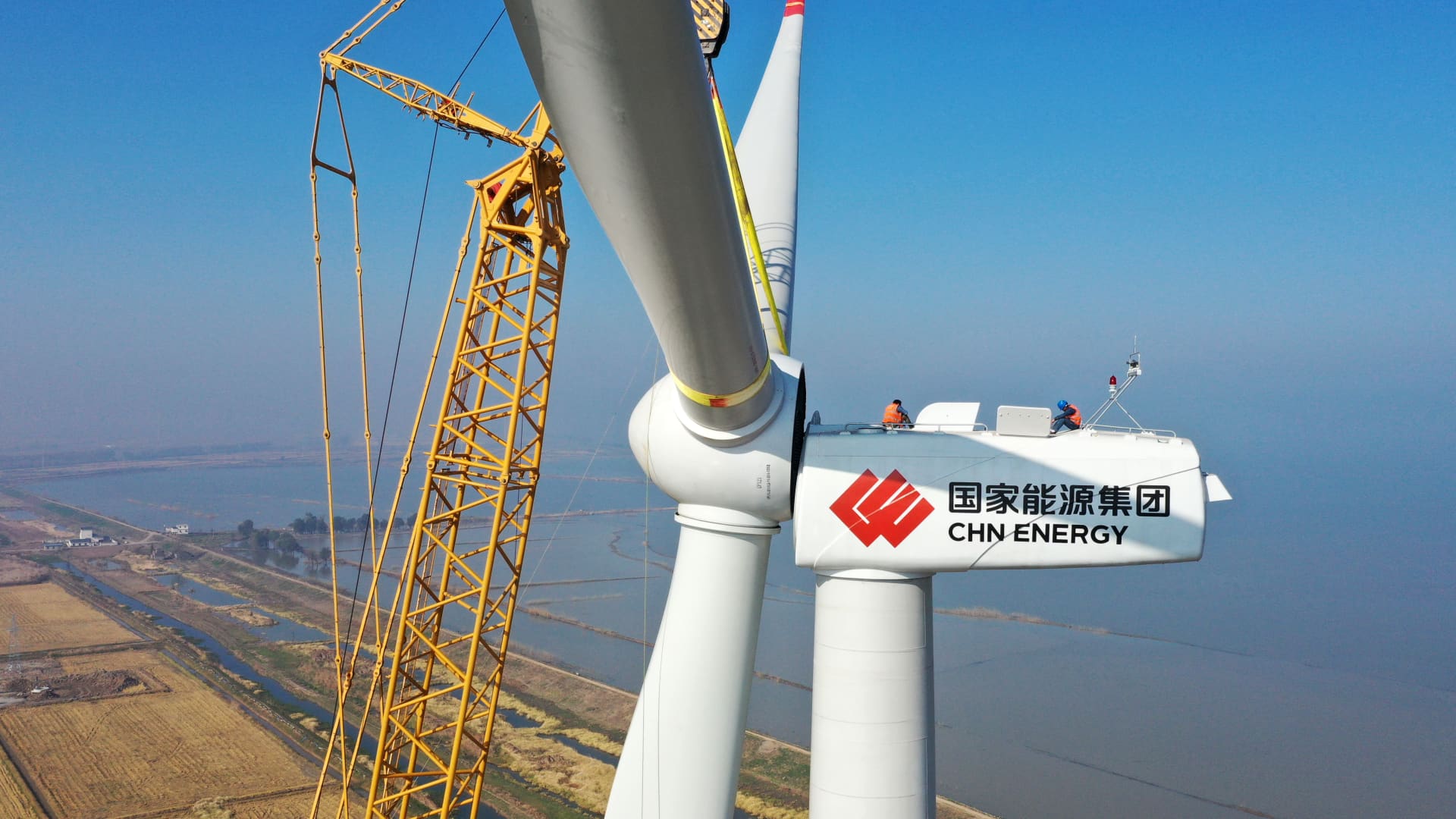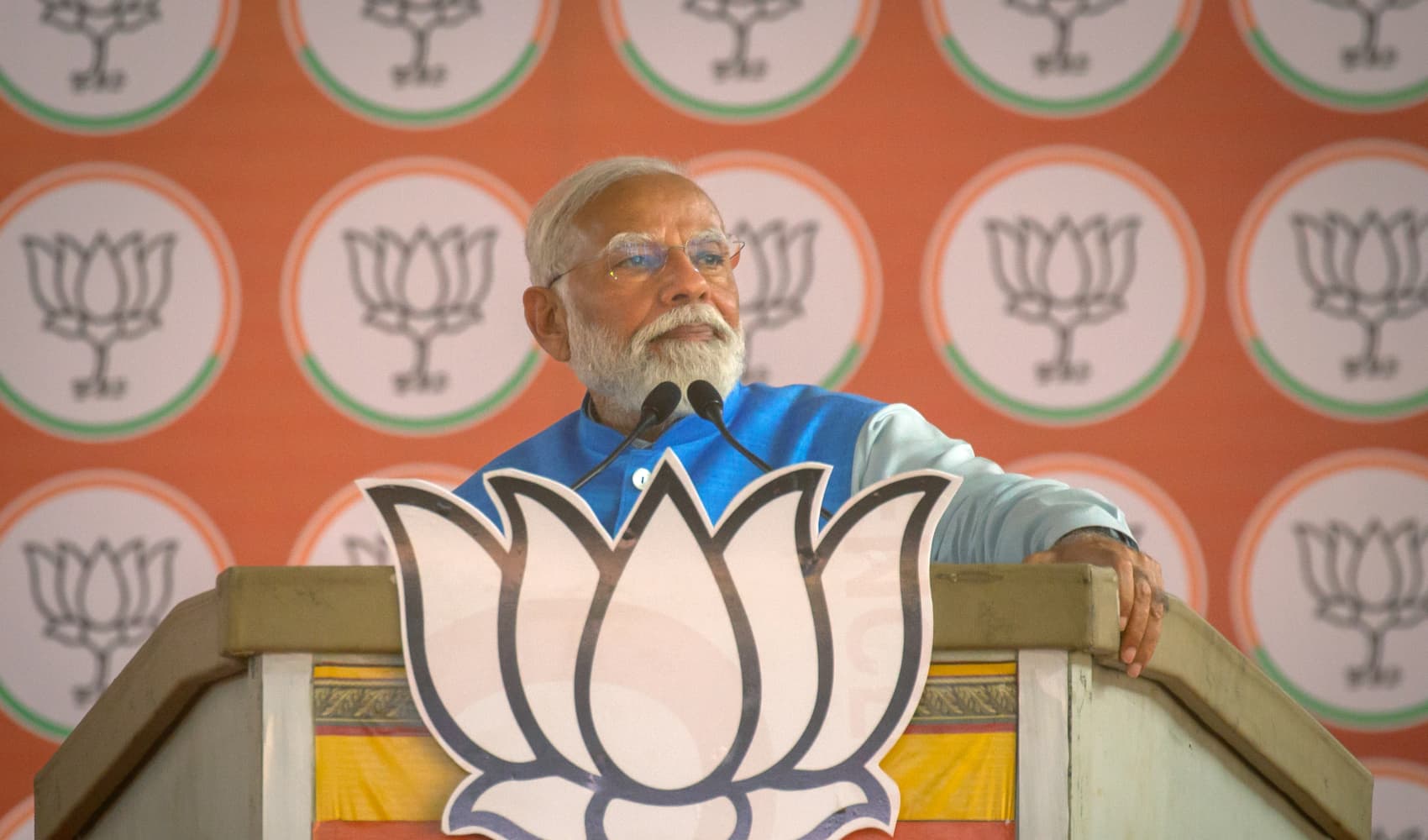
- Scientists warn that global carbon emissions will rebound next year and continue to surge unless governments prioritize climate change in their Covid economic recovery plans.
- A green pandemic recovery includes shifting away from fossil fuels and toward investing in zero-emissions technologies and infrastructure, ending coal plant production and restoring the planet.
- "The science is clear. Time is running out," said Inger Andersen, executive director of the U.N. Environment Programme.

During the coronavirus pandemic, the worst public health crisis in a century, some people pointed to what appears to be a tiny silver lining for the planet: Global lockdown measures reduced climate-changing carbon dioxide emissions.
Global greenhouse gas emissions plunged by roughly 7% from 2019 as a result of businesses closing and people traveling less by car and plane to mitigate the spread of the virus. The dip translates to a roughly 0.01 degree Celsius reduction of global warming by 2050 — a negligible impact, according to scientists.
But as 2020 ends and an initial vaccine rollout triggers hope that the pandemic will soon end, scientists warn that emissions will rebound next year and continue to surge unless governments prioritize climate change in their Covid-19 economic recovery plans.
Investing in a green recovery
In response to the pandemic's economic damage, the world's biggest economies have already committed more than $12 trillion in restarting economies, according to the International Monetary Fund.
Money Report
It's an unprecedented global effort that scientists and researchers argue must incorporate climate-resilient projects like increasing green public transportation, renewable energy and smart electricity grids.
"These stimulus packages are a once-in-a-generation opportunity to kickstart a green recovery, one that locks us into an equitable and sustainable future," said Inger Andersen, executive director of the U.N. Environment Programme.
"The science is clear. Time is running out," Andersen said. "We have one decade to transform our economies and avoid climate catastrophe."
More from CNBC Environment:
Covid pandemic drove a record drop in global carbon emissions in 2020
A historic Atlantic hurricane season is ending. Here’s a look at the records it shattered
A so-called green recovery after the pandemic includes shifting away from investing in and providing subsidies for fossil fuels and toward investing in zero-emissions technologies and infrastructure, ending coal plant production and restoring and conserving the planet.
"There's a bar for effective and lasting emissions reductions," said Kim Cobb, a climate scientist at Georgia Tech. "The pandemic fails on all counts."
"Coming out of the pandemic, governments of the world are going to be investing trillions of dollars in efforts to jumpstart economies and mitigate suffering," Cobb said. "They should make these stimulus packages emissions friendly and equitable."

The world is still heading for a temperature rise in excess of 3-degrees Celsius this century, far above the goals set by the global Paris climate accord. The temperature increases are linked to more frequent and destructive climate disasters like hurricanes and wildfires, rapid ice melt and exacerbated sea-level rise.
A green pandemic recovery could cut anticipated emissions in 2030 by up to 25% and increase the chances of keeping the world below a 2-degree Celsius scenario by up to 66%, according to a U.N. report published this month.
'Huge missed opportunity'
Jennifer Layke, global director at research group World Resources Institute, emphasized that the window of opportunity for governments to invest in climate-resilient technology and infrastructure is critical.
For instance, leaders of countries including Germany, Britain and Japan have urged nations to invest in technology like solar power and electric vehicles as part of their pandemic recovery plans.
In the U.S., Congress on Monday passed a $900 billion stimulus package that has several provisions to fight climate change, including significant investment in renewable energy technology like solar, wind and energy storage. Congress also agreed to cut the use of hydrofluorocarbons, a planet-warming chemical found in refrigerators and air-conditioning.
But many countries building out stimulus recovery plans have failed to prioritize clean energy investment, and policymakers and energy system participants are resorting to what they've done in the past.
Only about one-quarter of G-20 leaders have dedicated shares of their spending, up to 3% of GDP, to low-carbon measures, according to the U.N.
"We have not seen the level of investment in green stimulus that would allow to us to transition out of fossil fuels into cleaner technologies," Layke said. "It's a huge missed opportunity."
The global response to the pandemic is reminiscent of the financial crisis 10 years ago, Layke said, when carbon emissions rebounded higher than ever after governments around the world invested more in fossil fuels to recover from the recession.
"The economy is a big tanker heading in the wrong direction globally," she said. "This is the moment where we need these leaders to take action. If their Covid-19 recovery investments made to date are an indictor, we are off course."
More net-zero emission targets
What also matters is whether governments around the world update and solidify more ambitious climate targets at the next round of U.N. talks, set to take place in Glasgow, Scotland, in November.
While emissions trends aren't looking good, there is a global shift underway. The U.N. report showed that 126 countries comprising 51% of global greenhouse gas emissions have adopted or are considering net-zero emissions targets by mid-century.
China, the world's largest polluter, has vowed to reduce its emissions to net-zero before 2060. Britain has vowed to cut emissions by 68% by 2030. And Korea and Japan have announced net-zero targets.
In the U.S., President-elect Joe Biden has promised to reenter the Paris agreement and bring emissions to net-zero by 2050, though it's unclear how ambitious his emissions reductions target will be.
Despite a wide range of countries committing to reductions targets, experts criticized their global pandemic stimulus effort for failing to prioritize investments in energy efficiency.
"Ambition alone is not going to help us reduce emissions. It is absolutely critical that countries translate these ambitions and commitments into the nationally determined contributions and get moving with implementation plans," Andersen said.
"I also urge governments to use the next wave of Covid-19 fiscal interventions to move us in this direction, because at the end of the day, we simply cannot put a price on the future we stand to lose."






